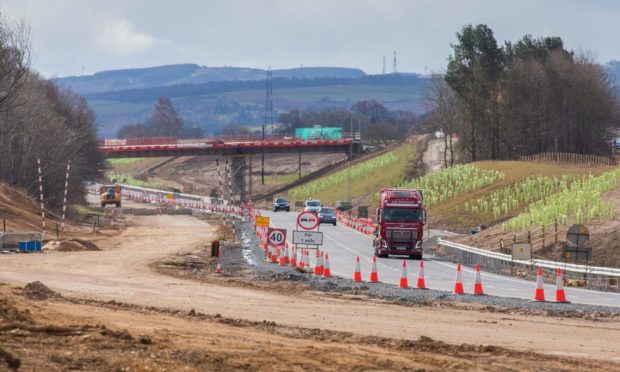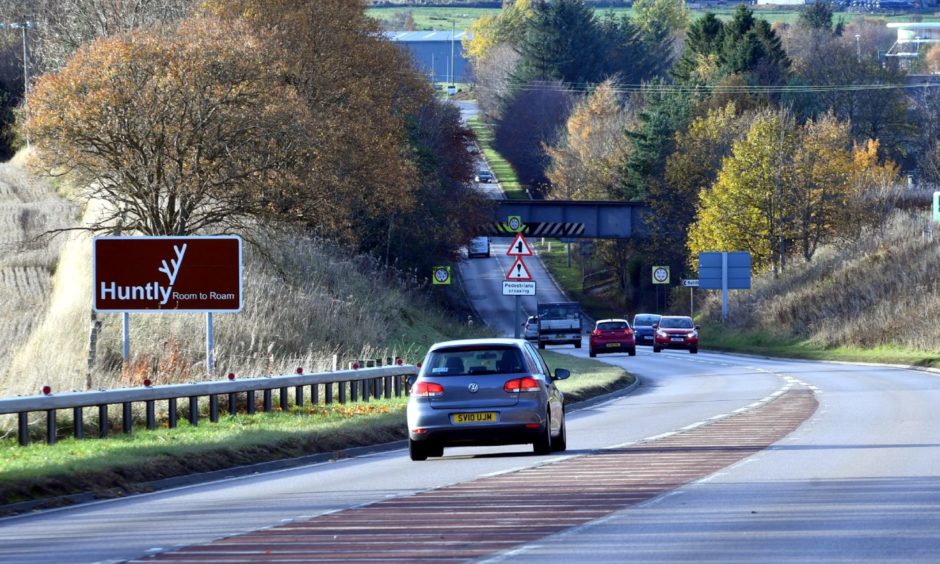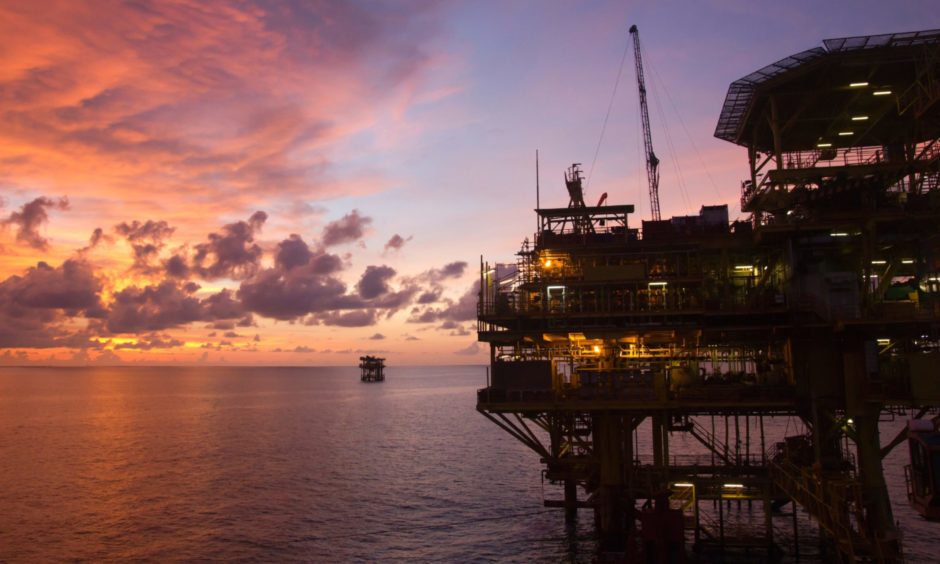Timescales to deliver the A9 and A96 dualling projects will need to be considered in light of the coronavirus pandemic, says the first minister.
During first minister’s questions on Wednesday, Nicola Sturgeon admitted the proposals to dual both roads is “ambitious” and said Covid-19 has had an impact on projected timescales.
The two schemes, which are expected to cost at least £6 billion, have faced lockdown setbacks, with only one section of the A9 complete so far and construction yet to start on the A96. Highlands and Islands MSP Jamie Halcro Johnston said the Scottish Government’s target to complete work on the two projects by 2025 and 2030, respectively, have been described as “ambitious”.
He asked the first minister for reassurance that both schemes would be “completed in full and within the original target timescales”, adding that the projects are “vital” for communities on “accessibility and safety”.
Ms Sturgeon agreed the proposals are “ambitious”, adding that “at times lengthy planning and statutory processes have to be undertaken”.
She said: “Not least because it is important that local residents and people get the chance to have their say on the design and any objections and concerns are taken into account and, where possible, addressed.
“Clearly, as is the case on almost every facet of life right now, Covid-19 has had an impact on all of this and we will need to consider what that impact will be going forward.
“But I’ve set out the significant progress, particularly on the A9, and where the A96 plans are and we’ll continue to progress these as quickly as possible.”
Coronavirus restrictions
The A9 dualling programme, one of Scotland’s biggest infrastructure projects, will upgrade 80 miles of road from single to dual carriageway to better connect Perth to Inverness.
The first of 11 sections have been completed, between Luncarty and Pass of Birnham, with “construction well under way on the second”.
However, teams working on the £3 billion project have faced setbacks over the last year due to coronavirus restrictions.
Meanwhile, fears have been raised over the Scottish Government’s commitment to the A9/A96 dualling.
It comes as the period for comments on the preferred option for a key stretch of the £3 billion A96 project – East of Huntly and Aberdeen – has been extended by a further three weeks.
Ms Sturgeon said the government continues to take forward both road schemes “despite the 5% cut to Scotland’s capital budget as a result of Westminster budget decisions”.
She added that the design and development processes for the A9 are being “protracted” by the impact of Covid-19 but “also rightly in ensuring that the statutory process concludes with communities having their say and any objections as far as possible being resolved”.
The first minister said: “Design work is also well under way in dualling the A96. This is a very significant undertaking which requires very in-depth planning and design to ensure we deliver the right schemes and keep impacts on the environment to the minimum.
“Once the statutory process concludes, a timetable for progress can be set.”
Offshore workers
Meanwhile, the first minister was also quizzed on the prospect of offshore staff being made a priority in phase two of the Covid-19 vaccine roll-out.
In response to a question by Scottish Conservative north-east MSP Liam Kerr, Ms Sturgeon said she “couldn’t say with certainty right now” that offshore workers could be moved up the list, adding that would be “pre-empting the clinical expert advice”.
Mr Kerr said “not enough is being done” by the Scottish Government to address the “concerning situation” that offshore workers face.
It comes after dozens of workers tested positive in recent weeks on North Sea rigs, with Ithaca Energy’s FPF-1 having to be shut down due to an outbreak of the virus.
Ms Sturgeon said: “I cannot say with certainty right now because that would be pre-empting the clinical expert advice.
“It will be done on the basis of the best clinical advice and in the order of priority that is most likely to reduce serious illness and cut the number of people dying from this virus.”
Speaking after FMQs, Mr Kerr said there is no standardised pre-mobilisation testing in Scotland, which means offshore workers are “more at risk of catching Covid when they are on board a rig”.
He added: “This is why the sector should be considered for the next rollout after phase one of the JCVI priority list has been completed.”



